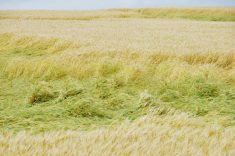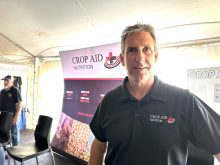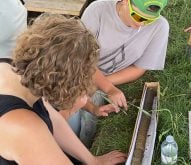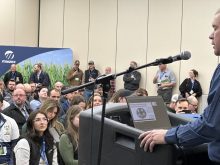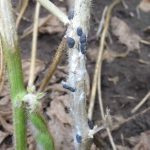Les Henry is a former professor and extension specialist for the University of Saskatchewan, a farmer, and a regular contributor of print and online articles and columns for Grainews for the past 37 years. He is also the author of Henry’s Handbook of Soil and Water. Today, we are pleased to announce that Henry has transferred the copyright of his book to Cory Willness, CEO of Croptimistic Technology, headquartered in Saskatoon.
Henry has been a well-known figure in public meetings and extension over the years and is no stranger to challenging presenters regularly. His boots-on-the-ground, common-sense approach to the soil sciences is one to which farmers relate. Henry’s Handbook features many practical notes and general rules, with the overall intention to challenge keen minds and provide ‘eureka’ moments, connecting textbook science to real-life examples.
“When I started my degree in 1992, I really enjoyed the introductory soil science classes and labs and Les was a big reason for that,” Willness says.
Read Also
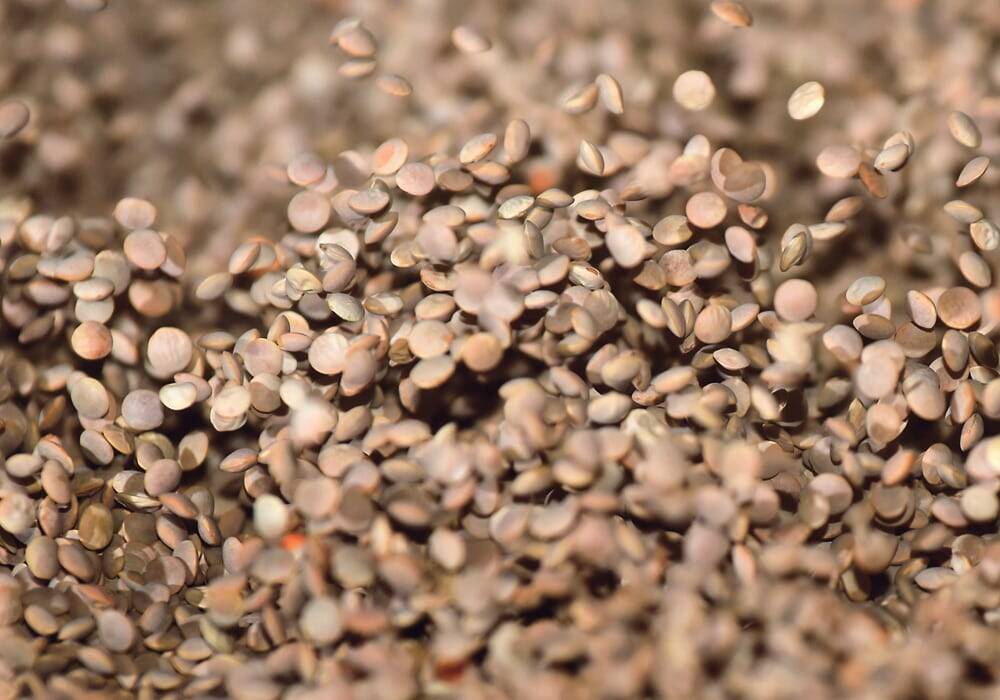
India likely to triple lentil import duty
Analysts anticipate India hiking duties to 30 per cent after March 31 to bolster domestic prices on expectation of strong harvest.

Whether in class, doing an extension meeting, or authoring, Henry was always challenging his audience on how they think about soil and water. A staple on many agronomists’ bookshelves, Henry’s Handbook lists the five soil-forming factors, defined as ‘climate, vegetation, parent material, topography and time.’ Henry provokes the reader to think further about soil by stating that the five main factors are ‘water, water, water, water and water.’ Henry has been quoted many times throughout the years with the common philosophy that ‘water drives everything.’ The book is a valuable resource covering concepts from the simple, such as the three phases of soil, to the more complex, such as hydrology and groundwater chemistry.
“I am happy to have the opportunity to transfer copyright for Henry’s Handbook of Soil and Water,” Henry says. “I know Cory and his company will do a good job in carrying on the legacy of my handbook.”
Willness says he and Henry have a mutual passion for the interactions between soil properties, water relationships, and soil surveys — an interest that helped form the vision for SWAT Maps and Croptimistic’s position in precision agriculture.
“Les and I have conversed on many phone calls, emails and meetings in his home office on Tucker Crescent in Saskatoon where our photo was taken,” Willness says.
In 2017, Henry signed Willness’ copy of the Handbook, writing “With fond memories of many useful discussions about soils, fertilizers and particularly precision ag.”
As they shook on the copyright exchange and future Handbook sales plans in April 2024, Henry updated his signing to “Here’s to good luck as a book salesman.”
Henry’s Handbook can now be purchased online. A new episode of the SWAT Agronomy podcast (episode SWAT 018) featuring Les Henry is now available through Apple Podcasts and Google Podcasts.



